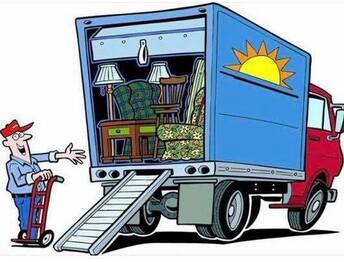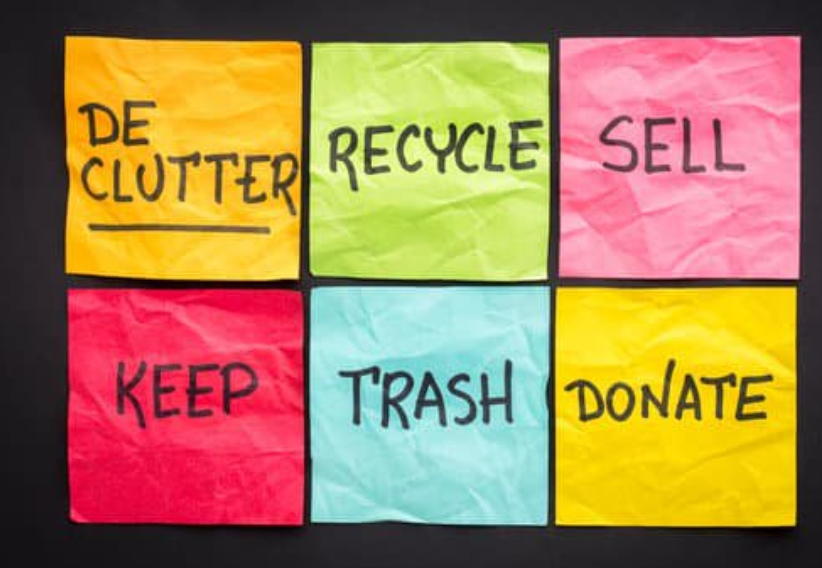What Happens To The Contents Of A House When Someone Dies?

When someone dies, the contents of their house may be distributed to family members, sold, or given away. The executor of the estate will usually make these decisions. If there is no will, the court may appoint someone to do this. Often, the contents of the house are not worth a lot of money and are not worth the hassle of distributing them. In this case, it is common for everything to be simply thrown away. If you are the executor of an estate, be sure to take inventory of the contents of the house and make decisions accordingly. If you are inheriting items from a deceased person, be sure to ask what is included in the inheritance. You may not want to keep everything, but it is nice to have the option.
The contents of a house are usually divided up among the deceased person’s relatives or sold off to cover debts and expenses. If there is nobody left to take care of the contents, they may be disposed of by the local authority. Small electrical items and up to six bags or sacks of trade waste can be taken to recycling centres, but hazardous waste, clinical waste and household waste will not be accepted. Larger amounts of trade waste will need to be arranged privately. A builders’ skip permit is required if you want to put a builders’ skip on a public road.

How Can You Recycle Or Dispose Some Common Waste Items From A House
It’s pretty easy to get rid of most things in a house, but some items require special care. Luckily, there are ways to recycle many common household items, even after someone has died. Here are some examples and some tips:
Appliances
Many appliance stores will take your old appliances and recycle them for you. You can also check with your local waste management company to see if they offer appliance recycling.
Fluorescent Bulbs
Electronics
Carpeting
Batteries
Mattresses
Furniture
Tires
Computers And Tvs
Paint
Clothing

As you can see, there are many options for recycling household items when someone dies. By recycling these items, you can help to reduce the amount of waste that goes into landfills. You can also help to provide resources for people in need.

Details Of Recycling Centre
- Location. You can find recycling centres at most waste management facilities. House clearance companies usually provide a waste management service as well.
- Hours. Most recycling centres are open during regular business hours.
- What to bring. You will need to bring your ID and proof of residency when you visit a recycling centre. You may also need to bring some items, such as appliances, in order to recycle them.
- How it works. Recycling centres typically have a drop-off area where you can leave your items. The staff will then sort the items and send them to the appropriate recycling facility.
- Fees. Some recycling centres may charge a fee for certain items, such as appliances. However, many centres do not charge a fee for most items.
When someone dies, their belongings are often left behind in their house. While some family members may want to keep certain items, others may not be sure what to do with them. To recycle your items, simply take them to your local recycling centre. You will need to bring your ID and proof of residency when you visit the centre. You may also need to bring certain items, such as appliances, in order to recycle them. The staff will then sort the items and send them to the appropriate recycling facilities.
Another option for what to do with the contents of a house after someone dies is to have a garage sale. This can be a good way to get rid of items that are no longer needed or wanted. It can also be a way to make some extra money. To have a successful garage sale, be sure to advertise it in advance and price the items appropriately.
Bin And Waste Collection Services
They will usually take away most items from a house during their regular pick-ups. However, there may be some items that are too large or bulky for them to take. In this case, it is necessary to contact a private waste collection company to remove the items.
If none of the above options are possible or desirable, then it may be necessary to simply throw away the contents of the house. This should only be done as a last resort, as it is not good for the environment. Be sure to check with your local authorities to find out what their regulations are for disposing of household waste.
Trade Waste Using Our Recycling Centres
You can take small electrical items and up to six bags or sacks of trade waste to our recycling centres. We will usually need to see some form of ID, such as a driving licence or a utility bill, before we can accept your trade waste.
Please note that we cannot accept the following items:
- Hazardous waste (e.g. asbestos)
- Clinical waste (e.g. syringes)
- Household waste (e.g. general rubbish)
If you have large amounts of trade waste, you will need to make arrangements with a private company for its removal.
Builders’ Skip Permits
You will need to apply for a permit from your local authority if you want to put a skip on a footpath, verge or road.
The cost of the permit varies depending on the council, but is typically around £25-£35.
It is important to note that you will also need to ensure that your skip has the correct safety markings and lighting, as well as being covered if it is placed on a public highway overnight.
Failure to do so could result in a fine of up to £1,000.
If you are planning to place a skip on private property, you will not need a permit, but it is always best to check with the owner of the land first.
They may have restrictions in place that you need to be aware of, such as not being able to place the skip near a fire hydrant or parking space.
You can apply for a builders’ skip permit online.
What You Should Do When The Sole Owner Of A House Dies
However, if you die without making a will (intestate), your house will pass to your next of kin according to the laws of intestacy.
The rules of intestacy vary from country to country, but usually your spouse or civil partner and/or your children will inherit your estate.
If you want to make sure that your house goes to a specific person or people when you die, you should make a will.
What Happens To Joint Ownership Of A House When One Owner Dies?
However, if the deceased had a will, their share of the house will be distributed in accordance with their wishes.
If you own a house jointly with someone and they die without making a will, their share of the house will be distributed according to the intestacy rules in your country.
This means that it may not go to the person you would like it to go to. For this reason, it is always best to make a will if you own property jointly with someone else.
Tips On What To Do If Someone Dies
- Offer your condolences and support to the family. This can be in the form of a phone call, visit, or card.
- Help with practical tasks such as looking after children or pets, cooking meals, or running errands.
- Attend the funeral or memorial service if you are able to.
- Make a donation to a charity in memory of the deceased person.
How The Probate Process Works
Probate is the legal process of dealing with someone’s estate (property, money, and possessions) after they die. The person who deals with the estate is called the executor.
If the deceased person left a will, the executor must apply for a grant of probate from the court. This gives them the legal authority to deal with the estate.
If there is no will, the executor must apply for a grant of letters of administration from the court. This gives them the legal authority to deal with the estate.
The executor must then:
- Identify and value all of the deceased person’s assets (property, money, and possessions).
- Pay any debts and taxes.
- Distribute the estate to the people named in the will or, if there is no will, according to the rules of intestacy.
If you are an executor, you should get professional help from a solicitor.
How The House Is Finally Disposed
If there is no Will, then the estate will be distributed in accordance with the intestacy rules. These rules set out who is entitled to inherit from the estate and in what proportions. The rules can be complex and vary depending on the circumstances, so it is important to seek professional legal advice if you are dealing with an estate where there is no Will. The first step in administering the estate is to value all of the deceased person’s assets and liabilities. This includes their property, possessions and money. Once the value of the estate has been calculated, any debts and taxes that need to be paid must be deducted from this total. The remaining amount is then divided among the beneficiaries in accordance with either the terms of the will or the intestacy rules.
If there is a Will, the estate will be distributed in accordance with the wishes of the deceased as set out in the document. The Executor named in the Will is responsible for ensuring that these wishes are carried out.
In either case, it is advisable to seek professional legal advice to ensure that the estate is administered correctly and that all debts and taxes are paid. Administration of an estate can be a complex and time-consuming process, so it is important to be prepared for this before embarking on it.




